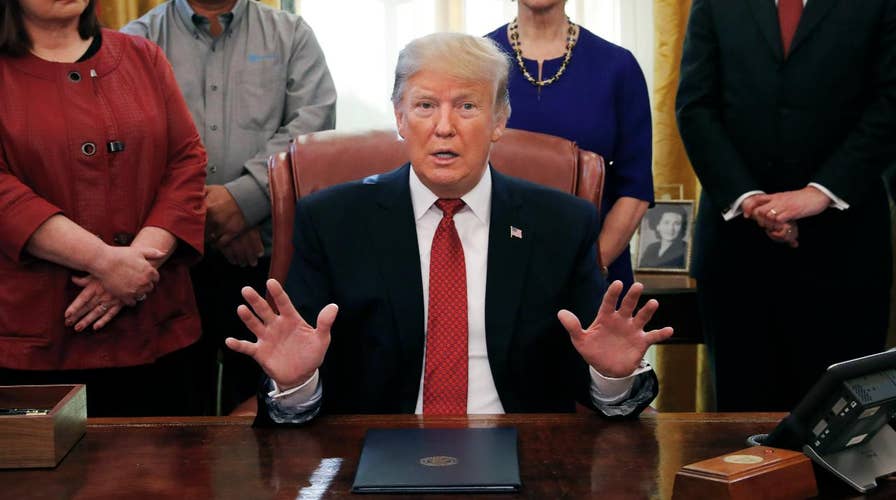Trump is expected to call for unity in his upcoming State of the Union address
Former George W. Bush speechwriter Anneke E. Green breaks down how President Trump can best convey a message of unity to the American people.
Thomas Jefferson once wrote, “I never considered a difference of opinion in politics, in religion, in philosophy, as cause for withdrawing from a friend.”
In his first inaugural address, Abraham Lincoln declared, “we must not be enemies.” Five weeks later, the Civil War broke out at Fort Sumter.
America is built on the pursuit of a more perfect Union, but today we are yet again on the brink of a civic fissure so deep it threatens our democracy.
Americans no longer see their political opponents as simply wrong or misguided. They see them as bad people whose ways of thinking are dangerous and incomprehensible.
How can we, as citizens, bridge this yawning political divide – not to “meet in the middle,” but to build mutual understanding, empathy, and respect? How can we find our “better angels,” as Lincoln famously implored us to do?
Americans no longer see their political opponents as simply wrong or misguided. They see them as bad people whose ways of thinking are dangerous and incomprehensible.
At an individual level, the first step is to actually talk with – rather than simply at or about – someone you disagree with politically. This doesn’t mean arguing. It doesn’t mean defending your positions or getting someone else to change their mind; it means approaching a conversation with genuine curiosity and humility. It means engaging to listen and be heard. These sorts of conversations, difficult though they may be, help clarify disagreements, reduce stereotyped thinking, and illustrate different perspectives. They build the trust needed to explore common ground in good faith.
Talking with the “other side” doesn’t require moderating one's positions or papering over disagreements. But Americans who participate often find they aren’t as divided as they thought – or at least not as divided as they’ve been told by politicians and the media.
At a community level, groups like Better Angels are bringing liberals and conservatives together for structured discussions and workshops that enable Americans to better understand each other’s views and experiences, remember their common humanity and build ties of civic respect. Talking with the “other side” doesn’t require moderating one's positions or papering over disagreements. But Americans who participate often find they aren’t as divided as they thought – or at least not as divided as they’ve been told by politicians and the media.
CLICK HERE TO GET THE FOX NEWS APP
At a national level, of course, our leaders are often the quickest ones to demonize and denigrate. If the other party is fundamentally worthless or irredeemable, the reasoning goes, then what's the point in trying to listen or understand? But when half the country begins to follow their lead and reflexively dehumanize the other side, we get into dangerous territory.
There is a fork in the road ahead for America: conversation or violence. As we move forward as a nation, our leaders would do well to look to the emerging grassroots movement of patriotic, empathetic, everyday Americans coming together as citizens to reject fear and hatred, and to live out the highest ideals of our experiment in democracy. Let’s make Lincoln proud.
Ciaran O’Connor is a former Clinton and Obama campaign staffer. John Wood, Jr. is a former Republican nominee for Congress. Together they help lead Better Angels. www.better-angels.org.
